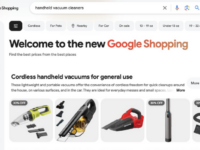With the integration of real-time web search into OpenAI’s ChatGPT tool last week, AI-powered search tools are back in the news. But what do they mean for your business’ SEO strategy?
In case you’ve never used one, AI-powered search engines process and combine web results into one natural-language answer. They allows users to search the web via conversational queries with their Gen-AI model of choice, be it ChatGPT, Copilot, or Gemini.
“Getting useful answers on the web can take a lot of effort,” according to OpenAI. “Now, chat can get you to a better answer: Ask a question in a more natural, conversational way, and ChatGPT can choose to respond with information from the web.”
The concept is catching on, leaving many businesses to question what the rise of these tools means for their existing SEO strategies. Should businesses change their advertising methods or content?
Will businesses have to change their SEO strategy?
SEO expert Pulkit Agrawal thinks that it’s still too early to rethink your SEO strategy.
“Search as a whole is going through a tectonic shift and businesses should focus on it, but large scale adoption [of AI-powered search tools] is still not there,” said Agrawal.
Agrawal adds that there is not a lot of publicly available information on how AI search results work. This means that even specialists like himself are still working out how best to make sure content ranks in its results.
Mini Cowburn-Cainer of Everyshot Marketing shared a similar sentiment. “Businesses will not have to change their strategies too much if they are already providing unique and thought leading content,” the marketer said.
Although AI-powered search tools might not be widespread now, the experts we spoke to expect them to stay – if not become the search method of the future.
“Just like Google became a source of trustworthy information 20 years ago, generative search will change the way people consume information and make informed purchasing decisions,” said Agrawal.
Building a reputation will be key
Some marketers and specialists are already preparing for the shift toward AI-powered search tools, but are adjusting existing SEO principles. For instance, building trust and reputation around your brand will still be relevant.
“Reviews and other trust signals, like backlinks, will continue to play a very important role,” said Cowburn-Cainer. “If you are a genuine local business and provide unique and useful content, this is only great news and a new avenue to find more business.”
The marketer and SEO specialist found that a good local reputation caused one of her clients to rank higher on SearchGPT [the prototype for the current ChatGPT search] than they did on traditional search engines. The client was not coming up high in the search rankings due to old legacy tech issues with their website. However, when Cowburn-Cainer searched the client on SearchGPT, they came up in the top recommendations for services in their local area.
AI specialist Sue Ellson echoed this sentiment, “To appear in AI results, you need to have a lot of content about your business out there on multiple high domain authority websites so that the AI can put the pieces of the puzzle together and see that you are a reputable source,” she said.
As search technologies evolve, it seems small businesses should stick to what they do best: offering personalised support and trusted connections with their customers.














